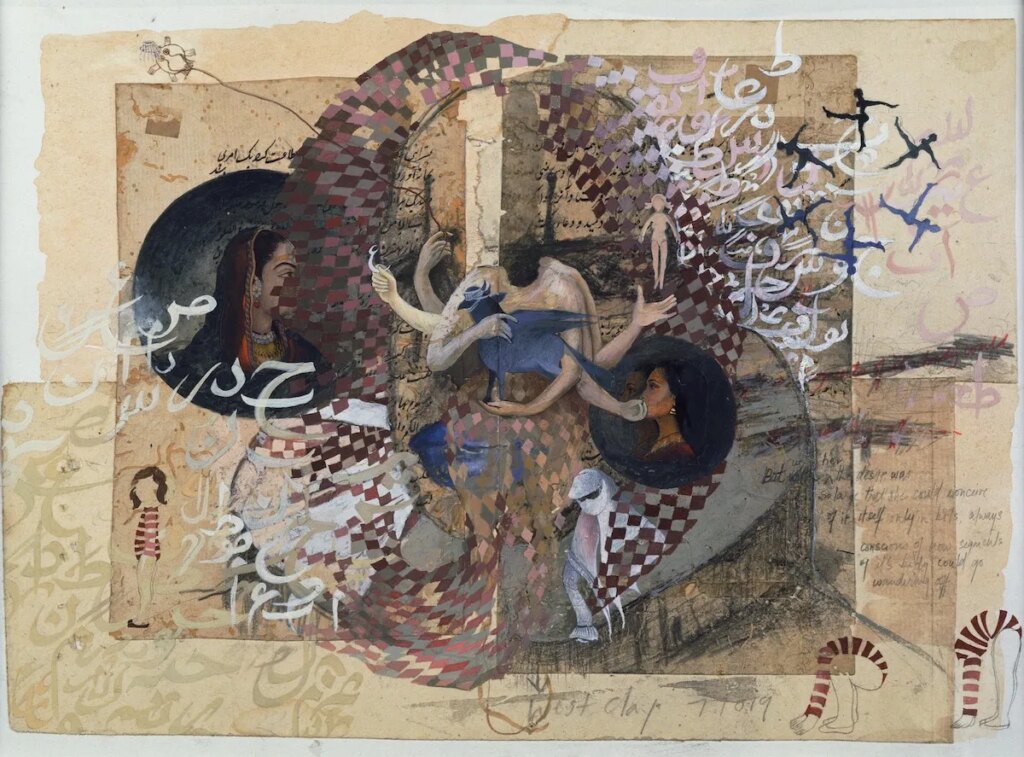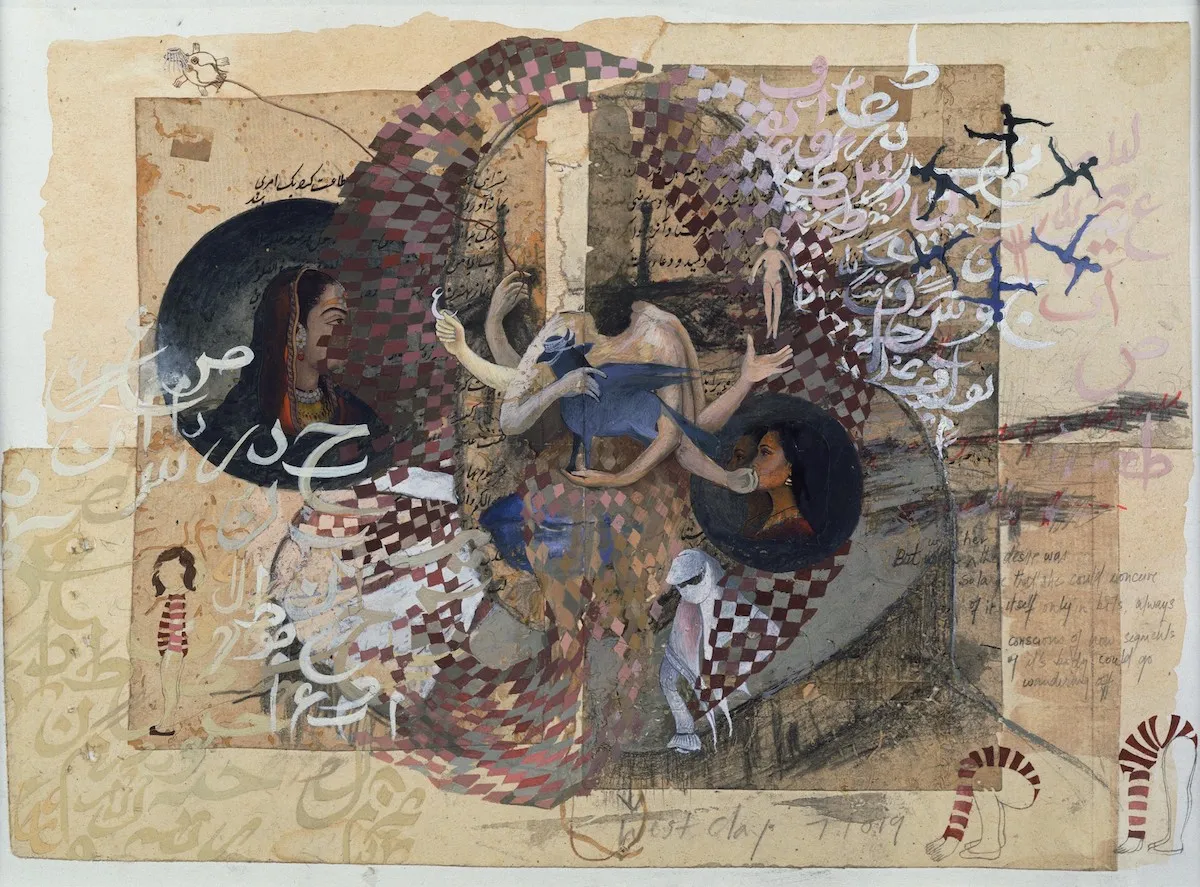
Italy’s Venice Biennale, the world’s biggest art festival, would be big enough if it were limited to merely its main venues, the Arsenale and the Giardini. But the sprawling show has gradually expanded beyond these sites as other seek to get in on the action, piggybacking on the central show and accompanying national pavilions by staging their own exhibitions alongside it.
Enter the phenomenon known as the “collateral event,” or a show that is technically mounted outside the confines of the Biennale but has been given the official stamp of approval by the Biennale’s foundation. Most collateral events are, to be sure, pay-to-play affairs. They are underwritten by major galleries or foundations, typically, and are lent authority by branding themselves with the Biennale’s logo.
For that reason, most collateral events are no more notable than the average gallery show. Yet every so often, one comes along that is worth seeing. And that’s not to mention the institutional shows that are being staged by museums and foundations across the city.
Below, ARTnews has collected 10 shows to see during the Biennale.
-
“Pierre Huyghe. Liminal” at Punta della Dogana
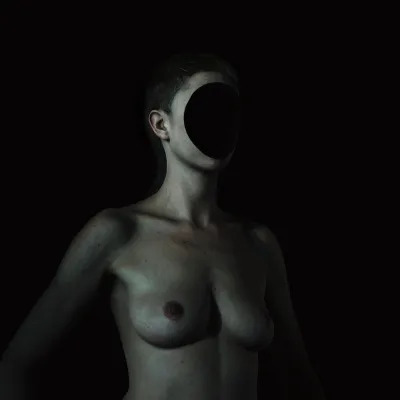
Image Credit: ©Pierre Huyghe, by SIAE 2023/Courtesy of the artist/Anna Lena Films, Paris
Expect the talk of the town this Venice—non-Biennale-wise, at least—to be the latest creation from Pierre Huyghe, an artist whose restless imagination has led him to utilize in his work materials as diverse as AI, live bees, and the ground beneath an exhibition space. The increasingly fuzzy relationship between the human and the nonhuman has been a longstanding concern for Huyghe, who had been mulling the topic well before DALL-E, ChatGPT, and the like, as past works included here will demonstrate. (The show itself is not quite a survey, not quite an exhibition of new work, but something in-between.) But Huyghe still has that query on his mind, too, and will broach it once more with the exhibition’s titular artwork, Liminal (2024), a moving-image work that is being teased with an image of a nude person with a black hole for a face—“an experiment, the simulation of a speculative human condition,” per the exhibition’s guide.
Dorsoduro, 2; Closest vaporetto stop: Salute -
“Christoph Büchel: Monte di Pietà” at Fondazione Prada
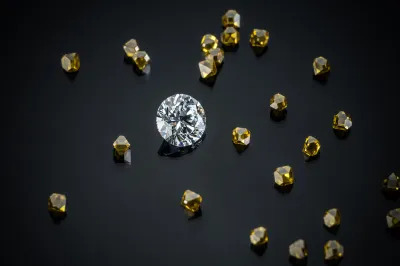
Image Credit: Photo Michael Huwiler
The title of this show from Swiss provocateur Christoph Büchel takes its name from an Italian institution that provided poor people with access to loans, essentially offering an alternative to having to seek financial relief from corrupt families with lots of money. Before it was an art museum, the Fondazione Prada’s Venice building hosted one such Monte di Pietà outpost; Büchel will here use that history to explore the concept of debt more broadly. Among the objects on view will be The Diamond Maker (2020–ongoing), a diamond-encrusted suitcase whose stones were grown in a lab with materials derived from Büchel’s unsold art. Past works by the artist that have been shown in Venice were followed by allegations of exploitation and opportunism. Whether this show will face similar accusations remains to be seen.
Calle Corner, 2215; Closest vaporetto stop: San Stae -
“Janus” at Palazzo Diedo
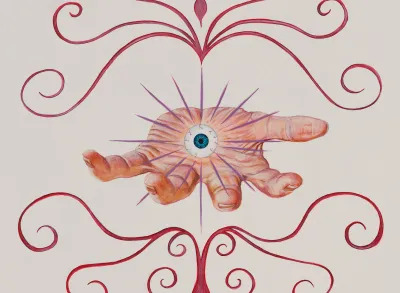
Image Credit: Photo Jeff McLane
Venice’s newest art space is the Palazzo Diedo, a site operated by collector Nicolas Berggruen that has the aspiration of becoming one of the city’s must-see venues. The lineup for its first exhibition, “Janus,” suggests that the space is already on its way to achieving that goal. Featured here will be 11 commissions by a range of celebrated artists, from well-known figures, like Sterling Ruby and Lee Ufan, to up-and-comers such as the London-based Rhea Dillon, who will show a new sculpture featuring a mahogany cross that is set to leak water onto the floor of the building. It’s one of the many ways that the artists will engage the history of the palazzo, an 18th-century structure that was once the property of an aristocratic family.
Fondamenta Diedo, 30121; Closest vaporetto stop: S. Marcuola Casino -
“Re-Stor(y)ing Oceania” at Ocean Space
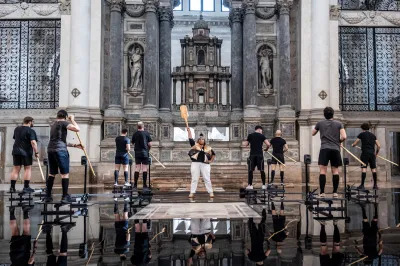
Image Credit: Photo Giacomo Cosua
This art space dedicated to commissions about bodies of water and their politics is this time turning its focus on two Indigenous artists from the Pacific: Latai Taumoepeau and Elisapeta Hinemoa Heta. In a two-person show curated by artist Taloi Havini, both exhibiting artists will be showing new installations that take up forms of Indigenous knowledge and resistance. Taumoepeau, an artist from the Tonga kingdom, will show Deep Communion sung in minor (archipelaGO, THIS IS NOT A DRILL), a choral work meant as a protest against deep sea mining. Its sounds can be heard within the galleries, sometimes while local athletes perform within. Meanwhile, Heta (Ngātiwai, Ngāpuhi, Waikato Tainui, Sāmoan, Tokelauan) is showing The Body of Wainuiātea, which similarly relies on music to encourage new modes of communion with the ocean.
Campo S. Lorenzo, 5069; Closest vaporetto stop: Ospedale -
“All African People’s Consulate” at Castello Gallery

Image Credit: Courtesy the artist and Cristin Tierney Gallery, New York
When the art world converges in Venice this week, it will represent a multinational coalition of people who’ve had the privilege to transgress borders. But the unfortunate fact is that not everyone can pass through their countries’ bounds, and an aspiration toward a different state of living guides this project by Dread Scott, who here envisions a consulate for “an imaginary Pan-African, Afrofuturist union of countries, promoting cultural and diplomatic relations,” according to a description of the show. Brought to Italy by the Africa Center and the Open Society Foundations, the presentation will allow people of African descent to apply for a passport to this fictional union and all others to obtain a visa to it.
Castello, 1636; Closest vaporetto stop: Giardini “A” -
“Landworks, Collective Action and Sound” at Magazzino Gallery
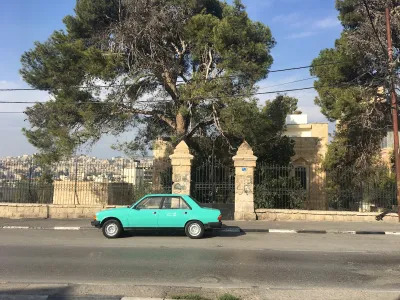
Image Credit: Photo Emily Jacir/Dar Jacir for Art and Research
The elephant in the room at this Biennale will be the war in Gaza, a topic that has already led thousands of artists to call for a boycott of the Israeli Pavilion. The list of collateral events contains just one project dealing with Palestine: “Landworks, Collective Action and Sound” presented by Artists and Allies of Hebron, a group cofounded by activist Issa Amro and photographer Adam Broomberg, who worked in collaboration with Dar Jacir for Art and Research, a Bethlehem art center founded by artist Emily Jacir. The show will include a spread of artworks, both by Palestinians and non-Palestinians, that deal with the West Bank. Broomberg, working with Rafael Gonzalez, has produced for the show a series of photographs of centuries-old Palestinian olive trees that many have warned are being imperiled by Israeli military action. In picturing the trees, the artists seek to showcase the “presence and resilience of the Palestinian people and their relationship with the land,” per a statement about the photographs.
Sestiere Dorsoduro, 874; Closest vaporetto stop: Accademia -
“Jean Cocteau: The Juggler’s Revenge” at Peggy Guggenheim Collection
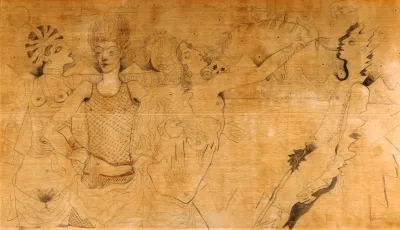
Image Credit: ©Jean Clement Eugene Mar Cocteau, by SIAE 2024/Phoenix Art Museum
While contemporary art abounds in Venice during the Biennale, scholarly exhibitions of modern art are generally few and far between. This retrospective for French multihyphenate Jean Cocteau is the rare historical show worth seeing this time around. Art historian Kenneth Silver has been brought on to curate the show, which upholds Cocteau as a figure who did more than simply collaborate with artistic figures such as Pablo Picasso, Sergei Diaghilev, and others. Rather, as Silver asserts with this show, Cocteau sought to master many different mediums, from dance to painting to film—although, depending on who you asked during his lifetime, he was not always particularly successful at any of them. His dalliances with Dada, Surrealism, and other European avant-gardes are on full display here.
Dorsoduro, 701-704; Closest vaporetto stop: Accademia -
“Elias Sime: Dichotomy ፊት አና ጀርባ jerba” at Spazio Tana
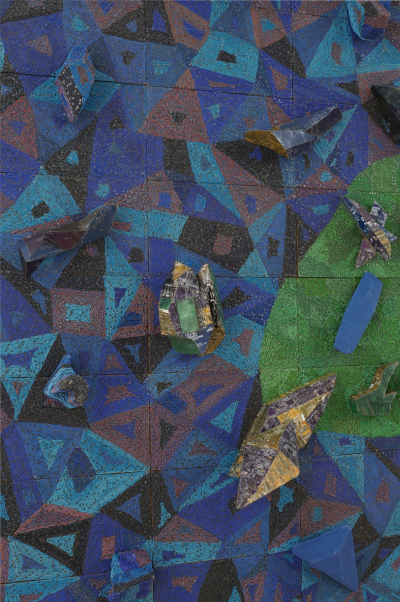
Image Credit: Photo Izzy Leung/Courtesy James Cohan Gallery, New York
Many of Elias Sime’s works seem like abstract paintings in reproductions. In fact, the Ethiopian artist’s most famous pieces are composed of computer parts—wiring, keyboard pieces, and the like—that he has recycled to form vast arrays of stuff. Those pieces, with their trenchant commentaries on technological trash coming to the Global South from the West, have been a hit with critics. Having appeared in the 2022 Biennale, Sime returns to Venice with this show organized by Germany’s Kunstpalast Düsseldorf, which will next year give him a proper retrospective. In addition to abstractions formed from smartphone bits, the show will feature a new sculpture formed from stone.
Fondamenta de la Tana, 2111; Closest vaporetto stop: Giardini -
“Yoo Youngkuk: A Journey to the Infinite” at Fondazione Querini Stampalia
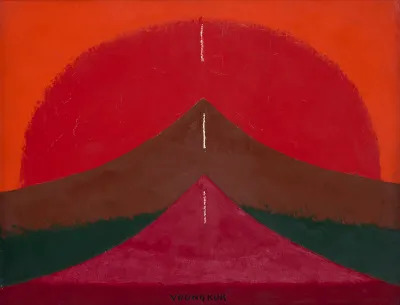
Image Credit: ©Yoo Youngkuk Art Foundation
Yoo Youngkuk’s abstractions of the 1960s and ’70s are radiant, bright, and enchanting, filled with contrasting planes of color that contain their own strange harmony. With their mountain-like forms and their swatches of effervescent yellow, they can often seem to represent imagined landscapes. But in representing nature with few details, Yoo found a minimalism that made him one of South Korea’s foremost modernists. Here, the late painter will be represented by 30 paintings, along with drawings, prints, and archival materials.
Campo Santa Maria Formosa, 5252; Closest vaporetto stop: Rialto -
“Shahzia Sikander: Collective Behavior” at Palazzo Soranzo van Axel
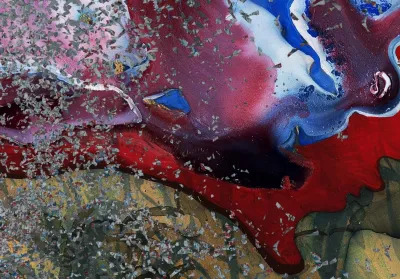
Image Credit: ©Shahzia Sikander/Courtesy Sean Kelly Gallery
The Pakistan-born, US-based artist Shahzia Sikander has been credited with helping to revive contemporary interest in Persian miniature painting, the tradition that sets figures within ornate, tiny images of buildings. Sikander’s miniatures, however, are unruly and unrestrained—they are filled with fantastical beings and references to bloodshed that would’ve been out of place centuries ago. Much of her art functions this way, with allusions to the conflicts of the present that also invoke Mughal and Hindu iconography of the past. Ahead of a more comprehensive survey for next year, the Cincinnati Art Museum has teamed up with another Ohio institution, the Cleveland Museum of Art, to present a sampler of Sikander’s work that also includes new glasswork.
Fondamenta Van Axel o de le Erbe, 30121; Closest vaporetto stop: F.te Nove

